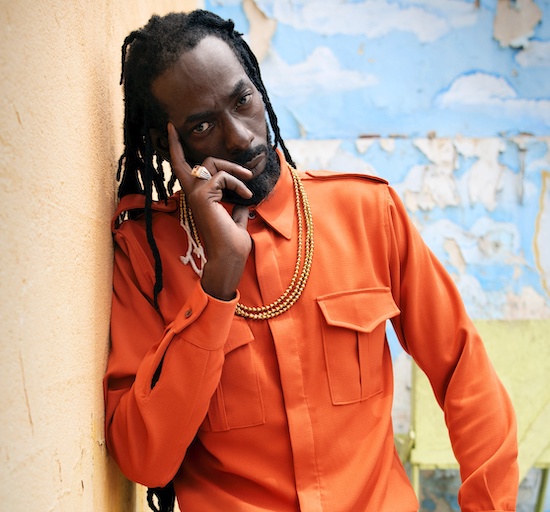There are fewer bigger names in Jamaican arts and culture than Buju Banton. A child of the early dancehall reggae scene and of the roots music tradition that has existed on the island for centuries, Buju Banton’s versatility across genres ensures that his catalogue will play out across class and culture for years to come. His voice is smooth in places where praise songs reach out to the wailing soul, gritty in original rudeboy style, he is sharp-cutting in rebelliousness where a defender of the people is needed. In this way, Buju Banton has managed to carve out an unforgettable place in reggae, even after a long prison sentence and a decade’s retreat from a business which has always struggled to offer financial and career longevity to its players.
Behind his own music and public persona, what has Buju Banton been listening to over the years? His song selections offer us a parallel look into his life as Buju the music consumer. It is the sounds of the 1980s that take centre-stage, particularly productions from Henry ‘Junjo’ Lawes on the Volcano Label. Everyone has that producer and those riddims that defined the time in which they grew up – for Banton here it is Lawes. Volcano Sound System dominated Jamaica’s music scene for the first half of the 80s, some would even say that Lawes gave the island its ragamuffin dancehall sound. Coincidentally, Volcano had its headquarters at Myrie Avenue in West Kingston at a time when the young Mark ‘Buju Banton’ Myrie dreamed of meeting him and making such music. Lawes moved Volcano to New York in 1985 and soon after did a five-year stint in an American prison for drug-related charges. Like Lawes on release, Banton is hoping to regain momentum and ride the rhythm back to the top of reggae music with new album, Upside Down 2020. He seems poised to do that, and has already won the Jamaica Festival 2020 Song Competition.
In the midst of a global pandemic, Black Lives Matter protests worldwide and the anticipation of reggae fans everywhere, the message from Buju Banton is clear – some people make music for themselves, but Buju Banton sees himself as a learner and teacher, a comforter in the face of trouble and a conduit of the sacred message of Rastafari. His Baker’s Dozen gives us an idea of his initiation.
To begin reading Buju Banton’s Baker’s Dozen selections please click the image below. Upside Down 2020 is out now


